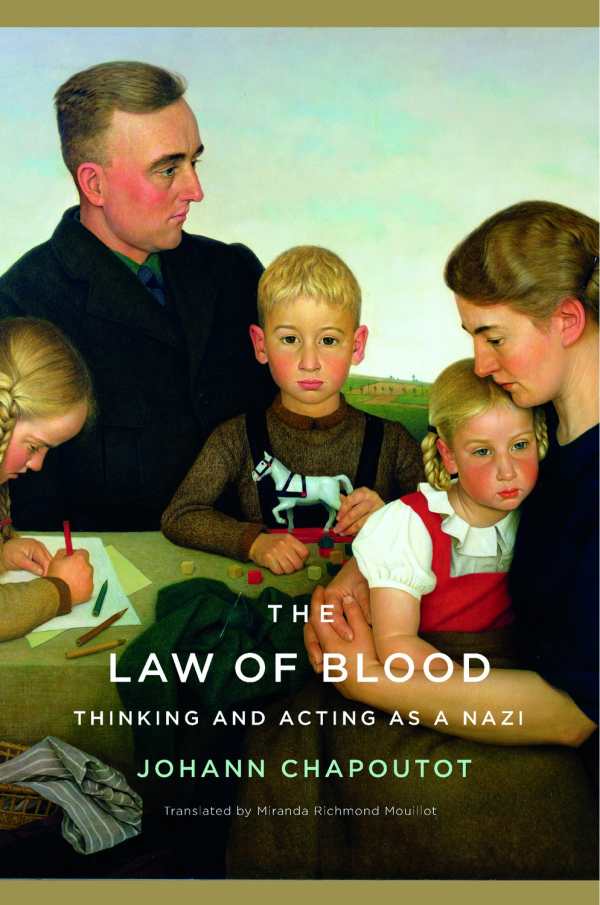The Law of Blood
Thinking and Acting as a Nazi
Johann Chapoutot’s The Law of Blood is a meticulously researched, chilling history of Nazism’s roots and doctrines that clarifies why the ideology was widely accepted for so long.
The book is a comprehensive study of the cultural, legal, and political underpinnings that resulted in a government that promoted the superiority of the German-Nordic race and the purity of the Aryan bloodline. Included are numerous quotes from Hitler, Himmler, Nazi judicial experts, and philosophers who believed that contamination by Jews, criminals, homosexuals, Christians, and citizens of foreign nations would lead to Germany’s downfall. This account is excellent at showing the links between those notions and the Holocaust, as well as at elucidating the legal rulings that disregarded individual rights.
Much of its attention is focused on the Nazi legal system, which regarded accused criminals as guilty if they were deemed unfit members of the Aryan bloodline and decided they deserved to die in the name of racial purity. The Holocaust in part arose from the same racism; Jewish populations were regarded as subhuman and compared to bacteria by a government that considered their extermination essential.
Although the book does not reveal much new information about Nazi life, its strength is in how it shows the way that Nazi lies and propaganda were eagerly accepted by the German masses. Although anti-Semitism was rampant throughout Europe and the United States, only Germany’s blood-obsessed culture allowed for the extermination of Jews and others deemed undesirable.
Non-Germans not requiring extermination—Poles, Slavs, and Russians—were to become slaves and their countries turned into agrarian support systems to ensure the health of the German bloodline. Ultimately, Nazism was a future-focused system that held Aryans unaccountable for past and current failings; all miseries resulted from Judeo-Christian conspiracies.
This is an important, specialized work for historians of twentieth-century Europe—an investigation that reveals how one of the greatest human atrocities was based on the complex, widely accepted dogma and doctrine of perverted cultural and pseudoscientific belief systems.
Reviewed by
Karl Helicher
Disclosure: This article is not an endorsement, but a review. The publisher of this book provided free copies of the book to have their book reviewed by a professional reviewer. No fee was paid by the publisher for this review. Foreword Reviews only recommends books that we love. Foreword Magazine, Inc. is disclosing this in accordance with the Federal Trade Commission’s 16 CFR, Part 255.

